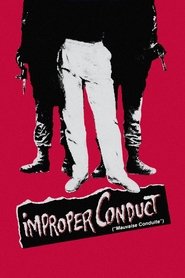detail profile guillermo cabrera infante

Guillermo Cabrera Infante
G. Cain
atau dikenal sebagai
Riwayat Hidup
From Wikipedia, the free encyclopedia.
Guillermo Cabrera Infante ( 22 April 1929 – 21 February 2005) was a Cuban novelist, essayist, translator, and critic; in the 1950s he used the pseudonym G.
Caín.
A one-time supporter of the Castro regime, Cabrera Infante went into exile to London in 1965.
He is best known for the novel Tres Tristes Tigres (literally "three sad tigers", but published in English as Three Trapped Tigers), which has been compared favorably to James Joyce's Ulysses.
Description above from the Wikipedia article Guillermo Cabrera Infante, licensed under CC-BY-SA, full list of contributors on Wikipedia.
Info Pribadi
Peran Yang Di Mainkan Guillermo Cabrera Infante
 In Havana Cuba in the late 1950...
In Havana Cuba in the late 1950...The Lost City 2005
In Havana, Cuba in the late 1950's, a wealthy family, one of whose sons is a prominent nightclub owner, is caught in the violent transition from the oppressive regime of Batista to the Marxist government of Fidel Castro. Castro's regime ultimately leads the nightclub owner to flee to New York.
 When his wife goes into a...
When his wife goes into a...Vanishing Point 1997
When his wife goes into a troubled labor while he is on the road over 1200 miles away James Kowalski, an ex race car driver and a former Army Ranger, attempts to elude police while trying to get home. After numerous chases he turns into a Native American reservation and reflects on his life, and his wife. He heads off to break through a police roadblock.
 The story of the persecution of...
The story of the persecution of...Improper Conduct 1984
The story of the persecution of homosexuals and intellectuals in Cuba under Fidel Castro's dictatorship, from the beginning of the Cuban Revolution (1953-59) until the early 1980s. Interviews with relevant personalities of Cuban culture who suffered persecution demonstrate that concentration camps for gays existed in Cuba.
 The eccentric professor Collins lives completely...
The eccentric professor Collins lives completely...Wonderwall 1968
The eccentric professor Collins lives completely secluded in his chaotic apartment. When the model Penny moves in next to him, he becomes fascinated by her. He drills holes in her walls and ceiling and peeps on her day and night. He loses himself in daydreams and delusions.
 Kowalski works for a car delivery...
Kowalski works for a car delivery...